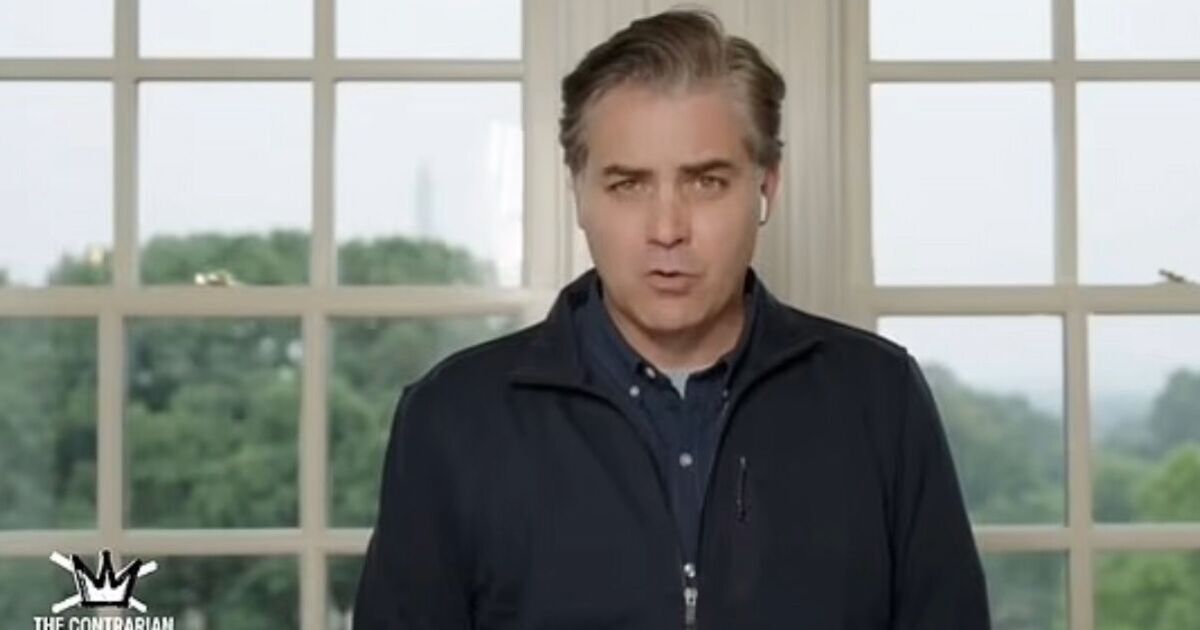Jim Acosta, a former CNN White House correspondent, is currently facing considerable backlash for a joke he made regarding Donald Trump’s late ex-wife, Ivana Trump, and her immigration status. This remark, made during a podcast appearance, has ignited a firestorm of criticism, drawing condemnation from Trump supporters and sparking a broader debate about the appropriateness of such comments. The controversy highlights the ongoing tensions surrounding immigration policies and the sensitivities involved when discussing public figures, particularly in the context of personal tragedy.
This article delves into the details of Acosta’s controversial statement, the reactions it has provoked, and the wider implications for political discourse. We will examine the specific context of the joke, the arguments made by Acosta’s defenders and detractors, and the potential impact of this incident on his career and reputation. Furthermore, we will explore how this event intersects with broader conversations about immigration, political correctness, and the role of humor in public commentary.
Acosta’s Controversial Remark
During an appearance on The Contrarian podcast, Jim Acosta made a joke referencing Ivana Trump’s immigrant background in relation to Donald Trump’s immigration policies. Specifically, Acosta alluded to Ivana being buried at Trump’s golf course in New Jersey, questioning how many immigrants Trump had married. This remark was perceived by many as insensitive and disrespectful, given Ivana Trump’s passing in 2022.
According to the Daily Express US, Acosta said, “How many immigrants has he married? He’s got one buried at his golf course in New Jersey! Isn’t she buried by the first hole or the second tee or something like that?” This comment was met with chuckles from the podcast hosts, April Ryan and Jennifer Rubin, but it quickly drew criticism online and in conservative media outlets.
Public Reaction and Backlash
The public reaction to Acosta’s joke was swift and largely negative. Many Trump supporters and conservative commentators condemned the remark as tasteless and disrespectful to Ivana Trump’s memory. Critics argued that Acosta’s comment was not only insensitive but also perpetuated harmful stereotypes about immigrants. The hashtag #FireAcosta began trending on social media, with many calling for his removal from any media platform.
White House press secretary Karoline Leavitt described Acosta as a “disgraceful human being,” further amplifying the criticism. Social media users echoed this sentiment, with one X user stating, “Disgraceful! And she was a legal immigrant not an ILLEGAL ALIEN!” Another user commented, “He’s an evil and sick human.” These reactions underscore the intense emotional response to Acosta’s joke and the deep divisions within the American public.
Support for Acosta’s Sentiments
Despite the widespread criticism, some individuals defended Acosta’s right to make the joke and expressed support for his sentiments. These supporters argued that Acosta was simply highlighting what they perceive as hypocrisy in Trump’s stance on immigration, given his personal relationships with immigrants. Some also suggested that the joke was a form of political satire, intended to critique Trump’s policies rather than to disparage Ivana Trump.
Comments on The Contrarian’s YouTube channel reflected this support, with one user writing, “Jim, yes, that is the right question to ask. We are the future, diversity.” Another user stated, “Jim don’t be sorry for what you say. Thanks for standing up,” while a third added, “Excellent discussion of Trump’s racism and hatred of how our country is getting more and more diverse.” These comments indicate that, for some, Acosta’s joke resonated with their own views on immigration and Trump’s politics.
Trump’s Immigration Policies and the Context of the Joke
To fully understand the context of Acosta’s joke, it’s essential to consider Donald Trump’s history of immigration policies and rhetoric. Throughout his presidency, Trump pursued a hardline approach to immigration, implementing policies such as the “travel ban,” the separation of families at the border, and increased deportations. His rhetoric often portrayed immigrants as a threat to national security and the economy.
Acosta’s joke can be seen as a commentary on what some perceive as a contradiction between Trump’s policies and his personal life, given that he has been married to two immigrants. By highlighting this perceived hypocrisy, Acosta may have been attempting to challenge Trump’s credibility on the issue of immigration. However, the use of Ivana Trump’s death as a punchline has been widely criticized as crossing the line into poor taste.
The Role of Media and Ethical Considerations
The controversy surrounding Acosta’s joke raises broader questions about the role of media personalities and the ethical considerations involved in political commentary. As a former White House correspondent, Acosta has a platform and a responsibility to engage in thoughtful and responsible discourse. Critics argue that his joke fell short of this standard, contributing to the polarization of political debate and perpetuating harmful stereotypes.
Defenders of Acosta might argue that he is entitled to express his opinions freely, even if those opinions are controversial. They might also suggest that political satire is a legitimate form of commentary, even when it involves sensitive topics. However, the line between satire and disrespect is often subjective, and the impact of such comments on public discourse must be carefully considered.
Conclusion
Jim Acosta’s immigrant joke about Donald Trump’s dead ex-wife, Ivana Trump, has ignited a significant controversy, highlighting the deep divisions within American society regarding immigration, political correctness, and the role of humor in public discourse. While some have condemned the joke as tasteless and disrespectful, others have defended it as a legitimate form of political satire. The incident underscores the importance of considering the ethical implications of political commentary and the potential impact of such remarks on public debate.
Ultimately, the controversy surrounding Acosta’s joke serves as a reminder of the sensitivities involved when discussing public figures and the need for media personalities to engage in responsible and thoughtful discourse. As the debate continues, it is essential to consider the broader implications for political communication and the potential for such incidents to further polarize an already divided nation.

Leave a Reply